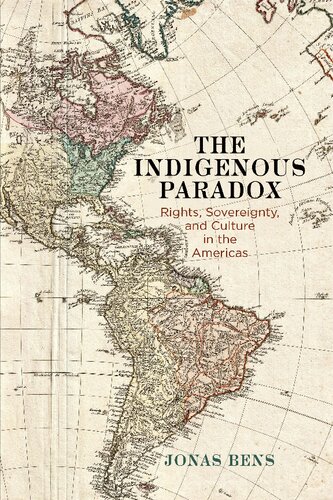

Most ebook files are in PDF format, so you can easily read them using various software such as Foxit Reader or directly on the Google Chrome browser.
Some ebook files are released by publishers in other formats such as .awz, .mobi, .epub, .fb2, etc. You may need to install specific software to read these formats on mobile/PC, such as Calibre.
Please read the tutorial at this link: https://ebookbell.com/faq
We offer FREE conversion to the popular formats you request; however, this may take some time. Therefore, right after payment, please email us, and we will try to provide the service as quickly as possible.
For some exceptional file formats or broken links (if any), please refrain from opening any disputes. Instead, email us first, and we will try to assist within a maximum of 6 hours.
EbookBell Team

4.1
100 reviewsAn investigation into how indigenous rights are conceived in legal language and doctrine
In the twenty-first century, it is politically and legally commonplace that indigenous communities go to court to assert their rights against the postcolonial nation-state in which they reside. But upon closer examination, this constellation is far from straightforward. Indigenous communities make their claims as independent entities, governed by their own laws. And yet, they bring a case before the court of another sovereign, subjecting themselves to its foreign rule of law.
According to Jonas Bens, when native communities enter into legal relationships with postcolonial nation-states, they "become indigenous." Indigenous communities define themselves as separated from the settler nation-state and insist that their rights originate from within their own system of laws. At the same time, indigenous communities must argue that they are incorporated in the settler nation-state to be able to use its judiciary to enforce these rights. As such, they are simultaneously included into and excluded from the state.
Tracing how the indigenous paradox is inscribed into the law by investigating several indigenous rights cases in the Americas, from the early nineteenth century to the early twenty-first, Bens illustrates how indigenous communities have managed--and continue to manage--to navigate this paradox by developing lines of legal reasoning that mobilize the concepts of sovereignty and culture. Bens argues that understanding indigeneity as a paradoxical formation sheds light on pressing questions concerning the role of legal pluralism and shared sovereignty in contemporary multicultural societies.